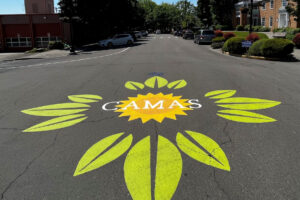Less than two months after passing a 2% utility tax on the city’s water, stormwater, sewer and garbage utilities, the Camas City Council has voted to revisit the issue in the near future.
The Council voted 4-2 on Tuesday, Jan. 17, to take another look at the city’s new utility tax in the second quarter of 2023 (April through June) — after the Council appoints someone to fill the Ward 3 seat left vacant in December 2022, after the surprise resignation of longtime Councilman Greg Anderson.
The Council approved the new 2% utility tax in a 4-3 vote – with Council members Don Chaney, Tim Hein and Leslie Lewallen voting against the tax — on Nov. 21, 2022. The Council also set conditions that rebates and exceptions be given to qualifying low-income residents, and that the new tax would “sunset” or end with the creation of a regional fire authority, which would likely reduce the city’s fire and emergency medical services costs, or by Dec. 31, 2024, whichever comes first.
The 2% utility tax on the city’s water, sewer, solid waste (garbage) and stormwater utilities is expected to add a little over $1 million to the city’s general fund over the 2023-24 biennium. City leaders have said the tax is needed to help steer the city away from a looming structural deficit as the costs of running the city begin to outpace the city’s revenues.
According to a presentation shown to the Camas City Council by Camas Finance Director Cathy Huber Nickerson on Oct. 17, 2022, the new tax will cost the average Camas family an extra $3.56 a month. The average downtown Camas business will pay an additional $22.25 a month and the average industrial user will pay an additional $1,909 a month.



